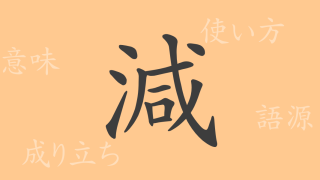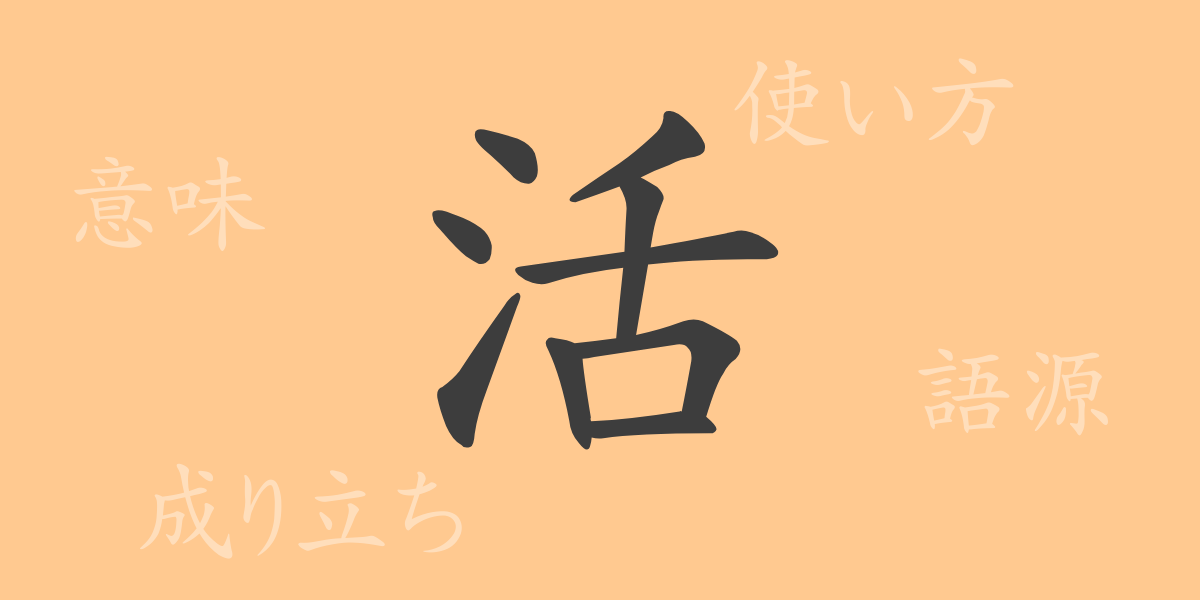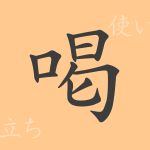Sure, here’s the translated content with HTML tags and SEO considerations for an English-speaking audience:
Japanese culture has flourished alongside the use of Kanji. The Kanji “活” (Katsu) is frequently used in everyday life, carrying a wide range of meanings and applications. In this article, we delve into the allure of the Kanji “活” (Katsu), exploring its origins and contemporary usage. Let’s deepen our understanding of the Japanese language and discover the rich world embodied in a single Kanji character together.
The Origin of 活 (Katsu)
The Kanji “活” (Katsu) originates from ancient Chinese oracle bone script. It was originally a symbol representing the act of doing something with fire. As fire vitalized the lives of people, “活” (Katsu) came to mean “to live energetically” or “to act.” Over time, it evolved into its current form and began to be used in various words.
Meaning and Usage of 活 (Katsu)
The Kanji “活” (Katsu) is used to mean “to live,” “to act,” and “to be active.” It also forms part of the word “活用” (Katsuyou), meaning “to use effectively.” In Japanese, this Kanji is employed in many expressions, each carrying a different nuance depending on the context.
Readings, Stroke Count, and Radical of 活 (Katsu)
The Kanji “活” (Katsu) has multiple readings, each with its own meaning depending on the usage.
- Readings: The Onyomi (Chinese reading) is “カツ” (Katsu), while the Kunyomi (Japanese reading) includes “い(きる)” (i-kiru) and “い(かす)” (i-kasu), among others.
- Stroke Count: A total of 9 strokes.
- Radical: 氵(Sanzui) or the “three drops of water” radical.
Idioms, Phrases, and Proverbs Using 活 (Katsu) and Their Meanings
There are many idioms, phrases, and proverbs in Japanese that include the Kanji “活” (Katsu). Below are some examples, along with explanations of their meanings.
- 活動 ( Katsudou): Moving around to do something, often referring to social or economic activities.
- 活躍 ( Katsuyaku): Achieving great results in a certain scene, commonly used in sports or business.
- 活気 (Katsuki): A state of being active and lively, such as a bustling market full of people.
- 活用 (Katsuyou): Making effective use of something, particularly in the context of skillfully utilizing words or technology.
- 活字 (Katsuji): Characters used in printing, or the printed characters themselves.
Conclusion on 活 (Katsu)
The Kanji “活” (Katsu) embodies a powerful meaning of vitality and activity within its single character. Its frequent use in the Japanese language allows it to take on various forms within words, enriching our expressions. When you encounter “活” (Katsu) in your daily life, remember its profound history and meaning, and take the opportunity to reappreciate the beauty of the Japanese language.

























